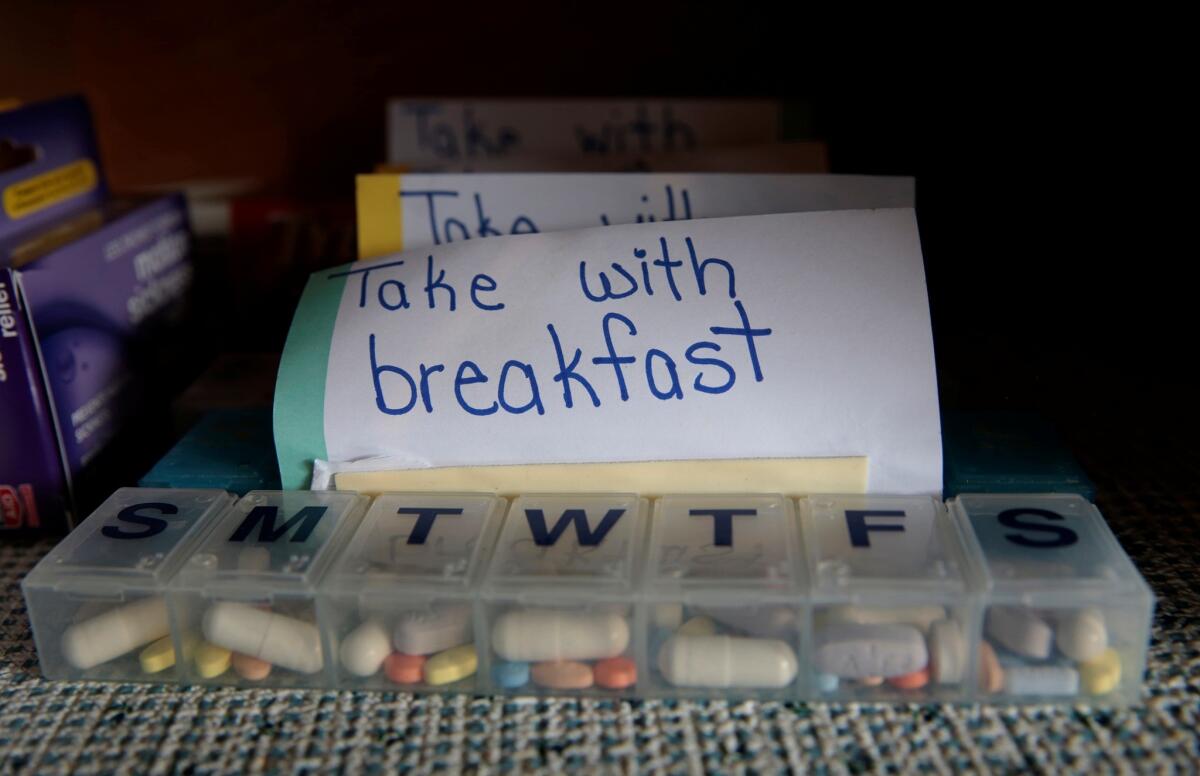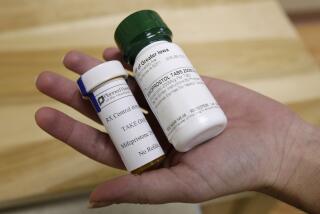Would you risk a shorter life to avoid taking a daily pill?

- Share via
Talk about pill fatigue: A new study says 1 in 3 adults would risk a shorter life span rather than take a daily pill to prevent cardiovascular disease.
The research, which was published Tuesday in Circulation: Cardiovascular Quality and Outcomes, an American Heart Assn. journal, found that a large number of people were willing to forfeit between one week and two years of life just to avoid popping a daily med, such as a statin, antihypertensive or aspirin.
The study was based on an Internet survey of 1,000 adults over 30, and is perhaps the largest ever to quantify the effect of daily pill-taking on a person’s quality of life, according to study authors.
“What we were really trying to measure is how much the act of taking a pill -- obtaining it, remembering to take it and actually taking it -- interferes with one’s quality of life,” lead author Dr. Robert Hutchins -- a resident physician at UCSF’s Department of Medicine -- said in a press statement.
“Even ignoring the side-effects of pills, the act of having to take a daily pill can have a large effect on an individual’s quality of life.... When you consider that many adults are on numerous pills, the effect is often magnified for that person,” Hutchins said.
The mean age of survey participants was 50, and the majority were white (63%) and female (59%). More than three-quarters of them were already on a daily regiment of one or more pills, researchers said.
The survey participants were asked how much time they were willing to trade to avoid taking a daily pill to prevent cardiovascular disease; how much risk they would assume to avoid taking the pill; and how much they would be willing to pay -- up to $25,000 -- to avoid taking the pill.
The researchers found that about 70% of the participants were unwilling to trade any amount of time, while 43% were unwilling to pay any sum of money to spare them the pill.
There were those however who were willing to make a deal.
More than 8% of participants said they would trade two years of life to avoid the chore, while roughly 21% said they would trade between one week and one year of their lives.
About 21% said they would pay $1,000 or more to avoid taking the medication, according to researchers, while 2.8% said they would fork over 25 grand.
When researchers asked the participants if they were willing to risk immediate death to avoid taking the pill, 62% said no way. However, 13% were willing to accept a minimal risk of death and 9% said they’d risk a 10% chance of death.
Hutchins and his colleagues note that the study has some limitations.
The survey measured attitudes at one point in time only, and did not take into account a change in preferences over time. Also, the researchers did not ask whether respondents took pills specifically for cardiovascular disease prevention or whether they had suffered cardiovascular problems in the past.
The researchers said they hoped the survey results would aid health policymakers as they evaluated the cost and effectiveness of treatments for cardiovascular disease.
Follow @montemorin for science news






